Observational skills Normal Science Worksheets for Ages 7-8
11 filtered results
-
From - To
Enhance your child's observational skills with our engaging Normal Science Worksheets, specifically designed for ages 7-8. These worksheets provide fun, interactive activities that encourage young learners to explore their surroundings and make detailed observations. Each worksheet features clear instructions and interesting themes to spark curiosity, empowering students to sharpen their analytical abilities. Through coloring, matching, and identifying, learners will develop critical thinking skills while enjoying the fascinating world of science. Perfect for both classroom and home learning, these worksheets are an excellent resource for fostering a love of learning in young explorers. Download now and watch your child's observational skills flourish!
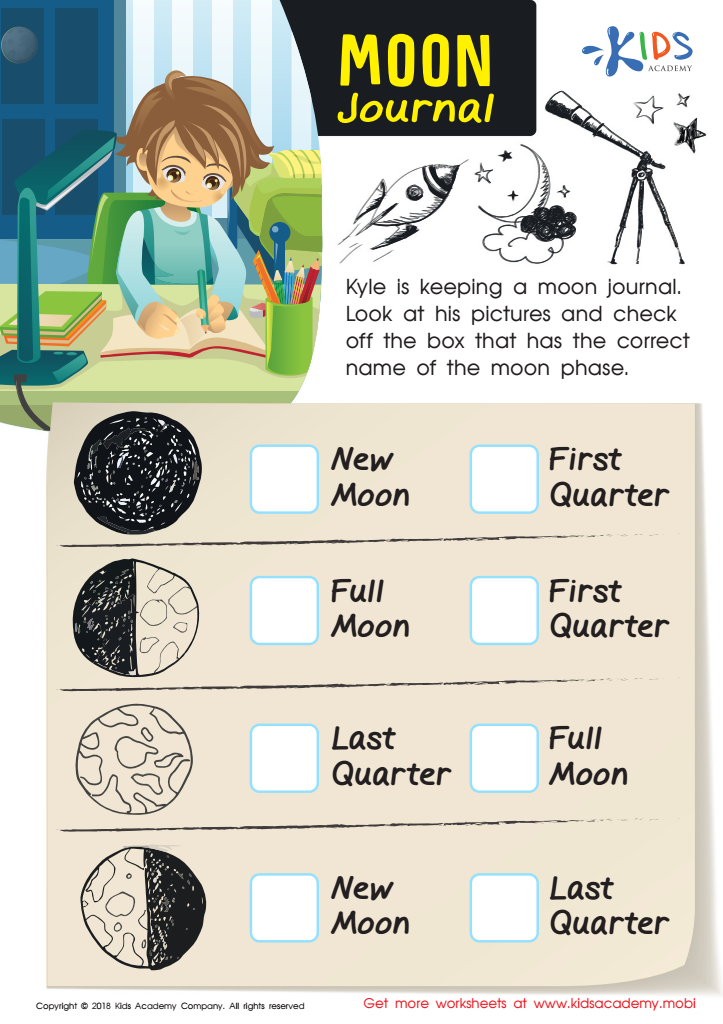

Moon Journal Worksheet
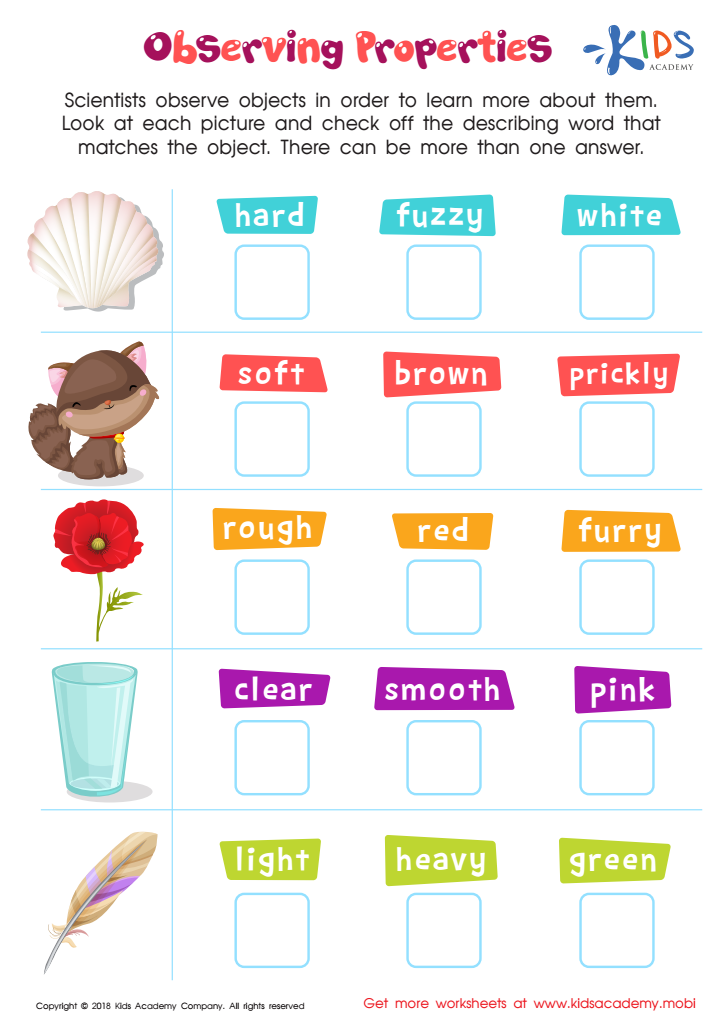

Observing Properties Worksheet
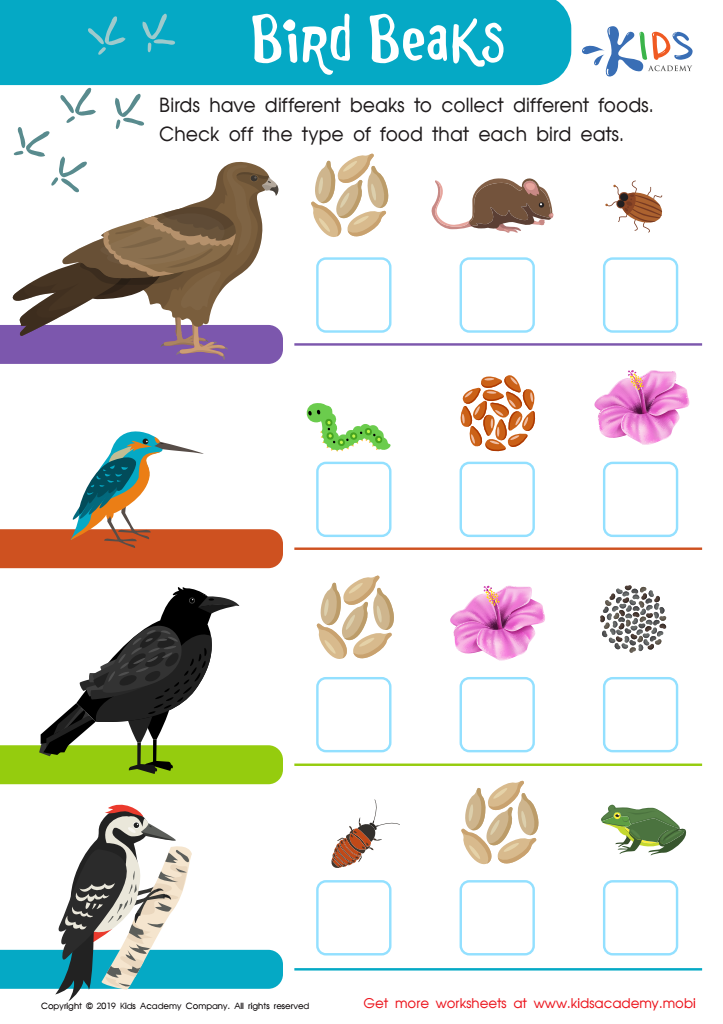

Bird Beaks Worksheet
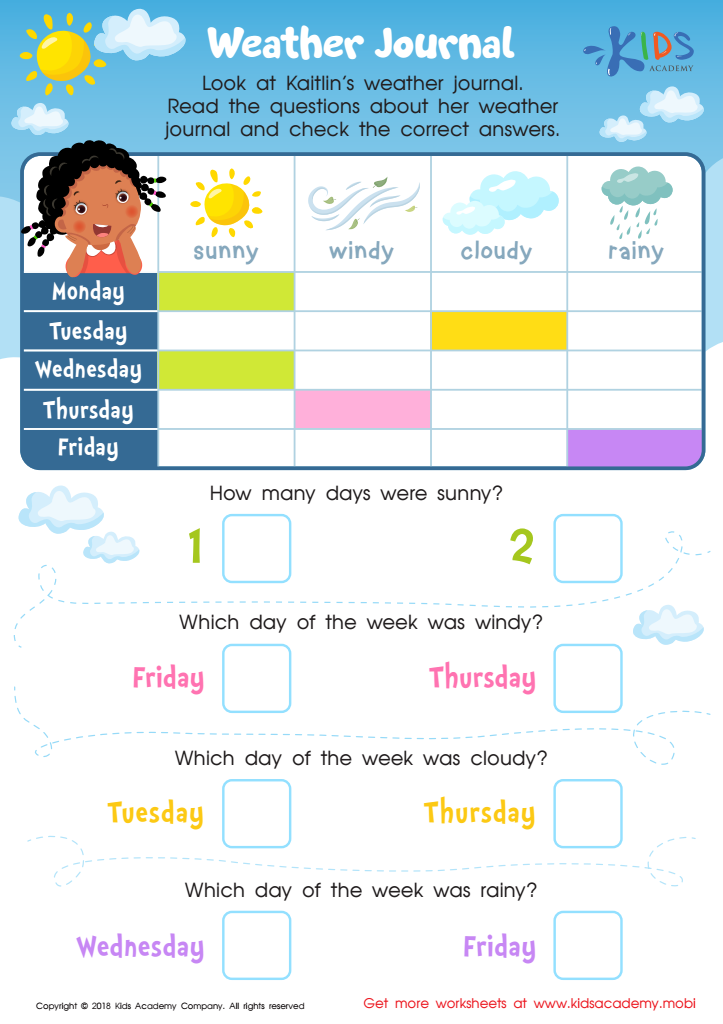

Weather Journal Worksheet
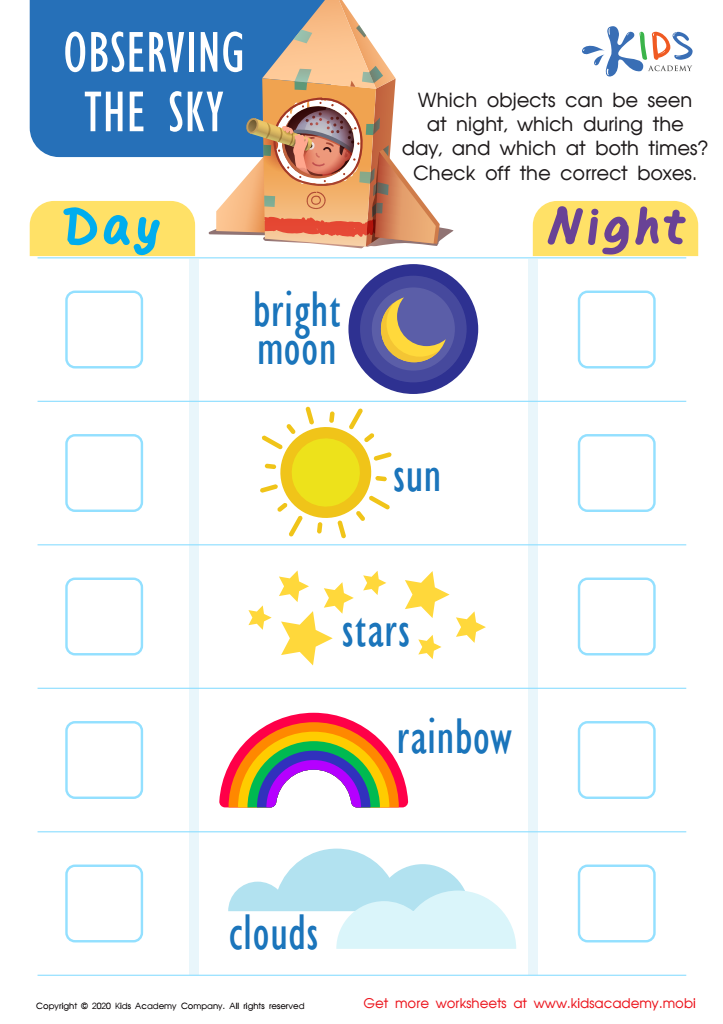

Observing the Sky Worksheet
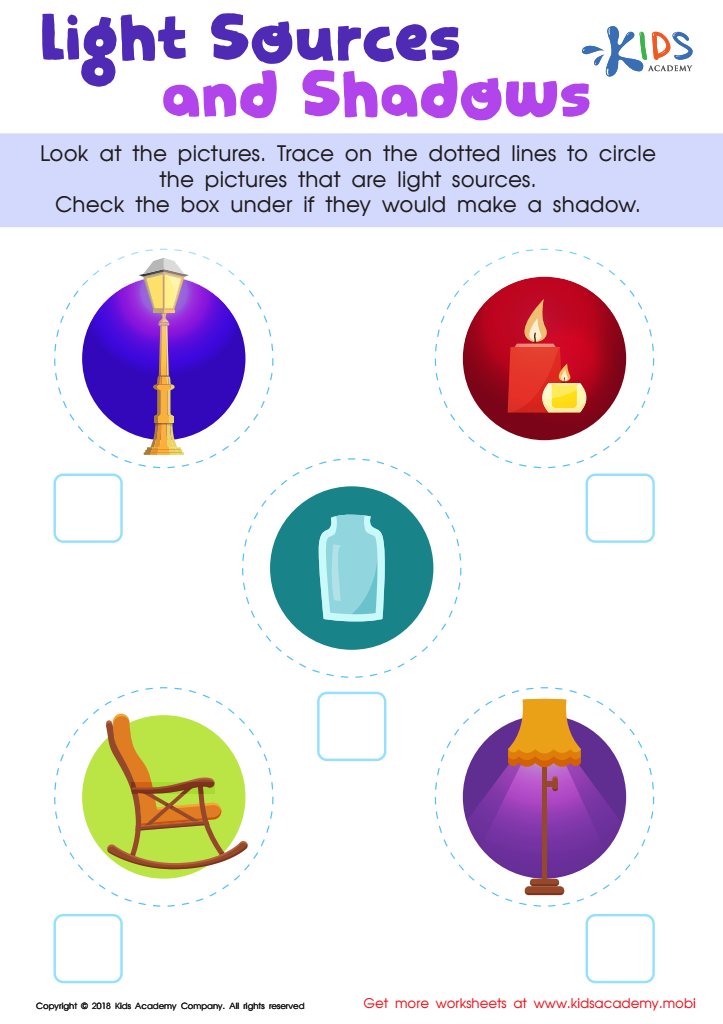

Light Sources and Shadows Worksheet
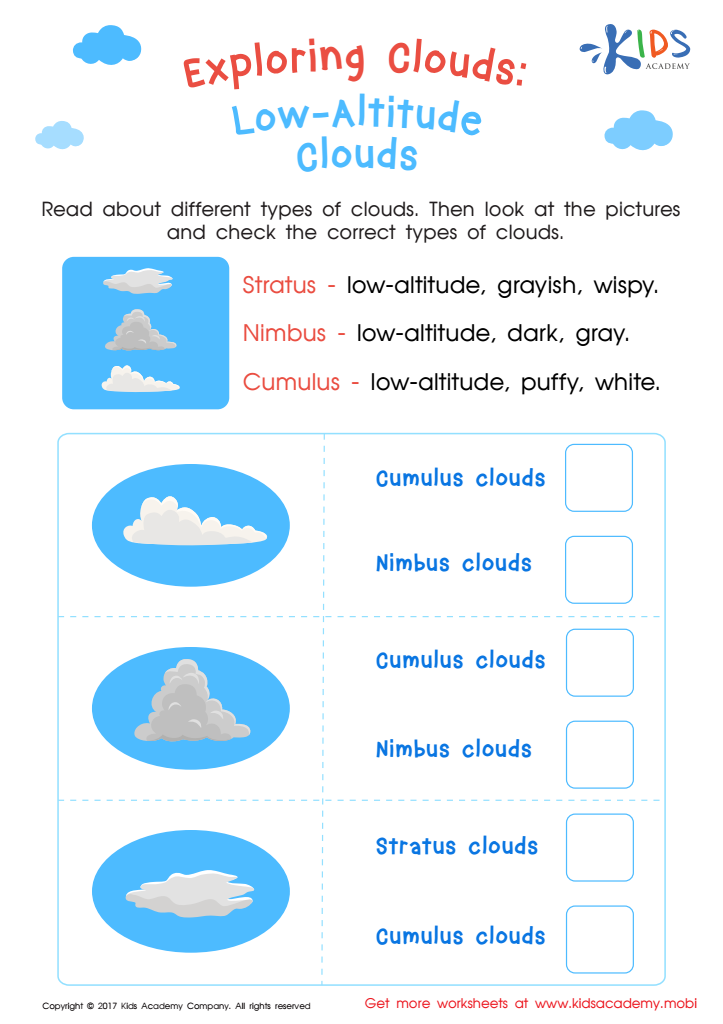

Exploring Clouds: Low Altitude Clouds Printable
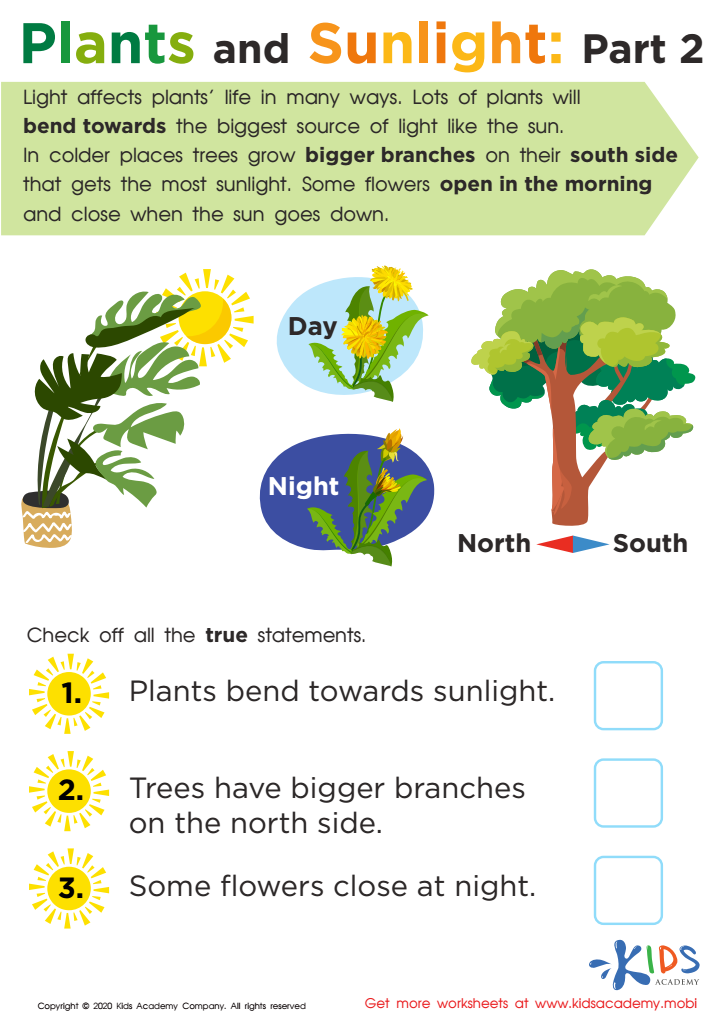

Plants and Sunlight: Part 2 Worksheet
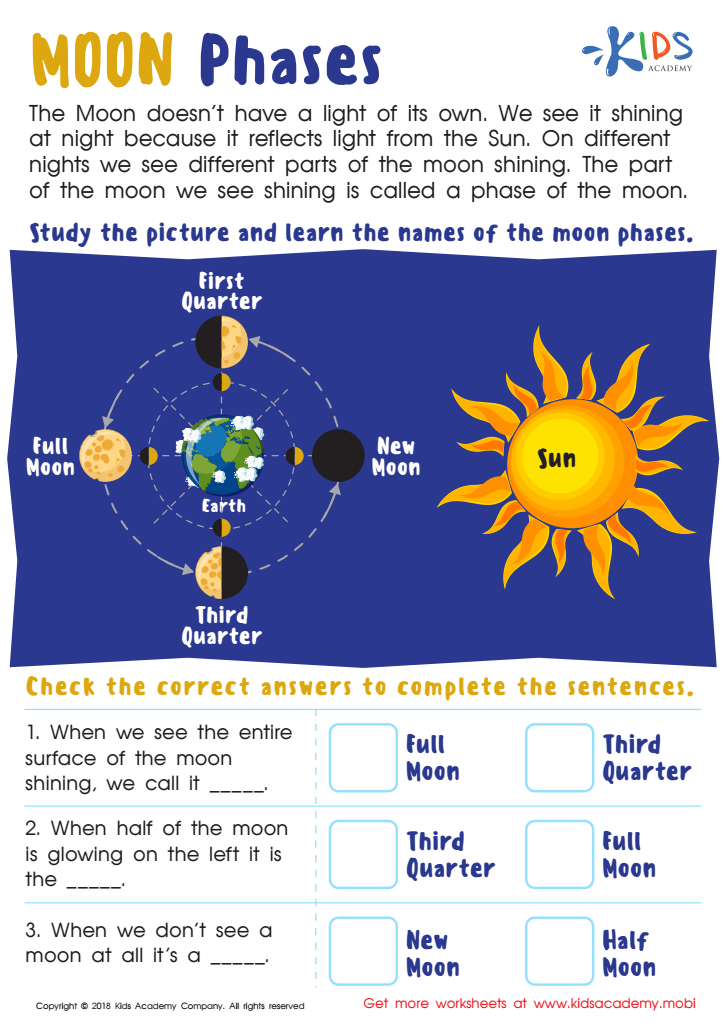

Moon Phases Worksheet
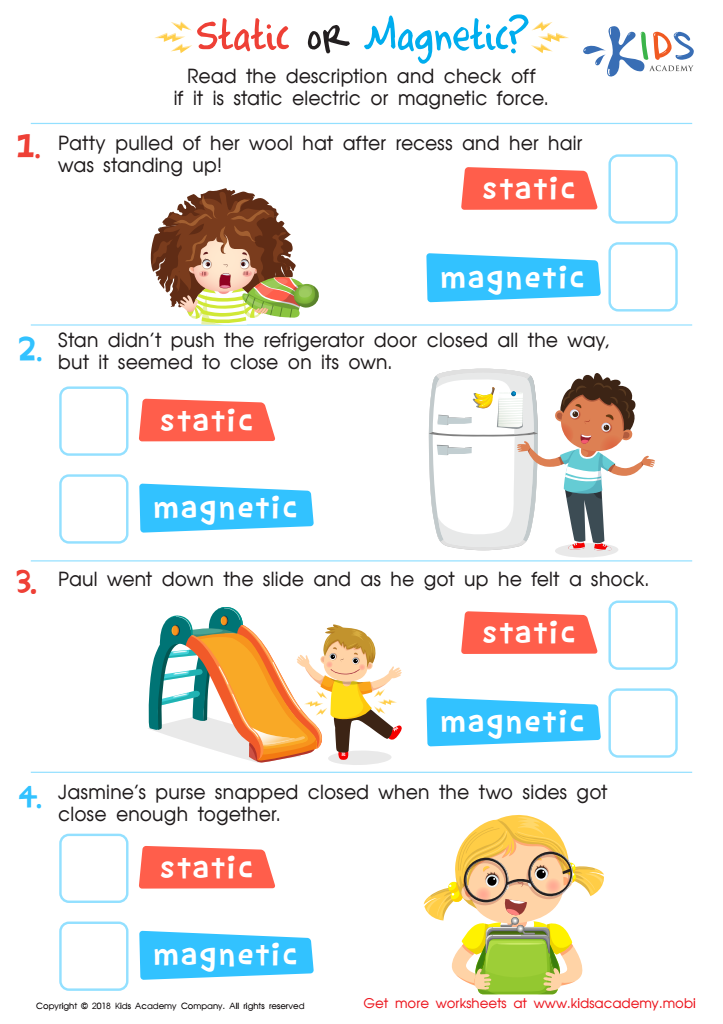

Static or Magnetic Printable Worksheet


Animals and Plants: Assessment 1 Worksheet
Observational skills are essential for children ages 7-8, particularly in the context of Normal Science, which emphasizes everyday, practical experiences in learning. At this age, children are naturally curious about the world around them. Fostering observational skills helps them develop the ability to notice details, ask questions, and gather information through careful observation. This is vital for their cognitive development, as it sharpens critical thinking and analytical capabilities.
Parents and teachers should care about these skills because they form the foundation for scientific inquiry. When children learn how to observe effectively, they become more engaged in their learning process. This can lead to a greater understanding of scientific concepts such as cause and effect, classification, and problem-solving.
Moreover, cultivating observational skills supports social-emotional development. Children learn to communicate their observations, collaborate with peers, and express their ideas confidently. This not only enhances academic performance but also builds a sense of community in the classroom.
Incorporating activities that promote observation, such as nature walks, science experiments, or everyday explorations, can enrich the learning experience. Ultimately, developing strong observational skills equips children with the tools they need for a lifetime of learning and curiosity.
 Assign to My Students
Assign to My Students














